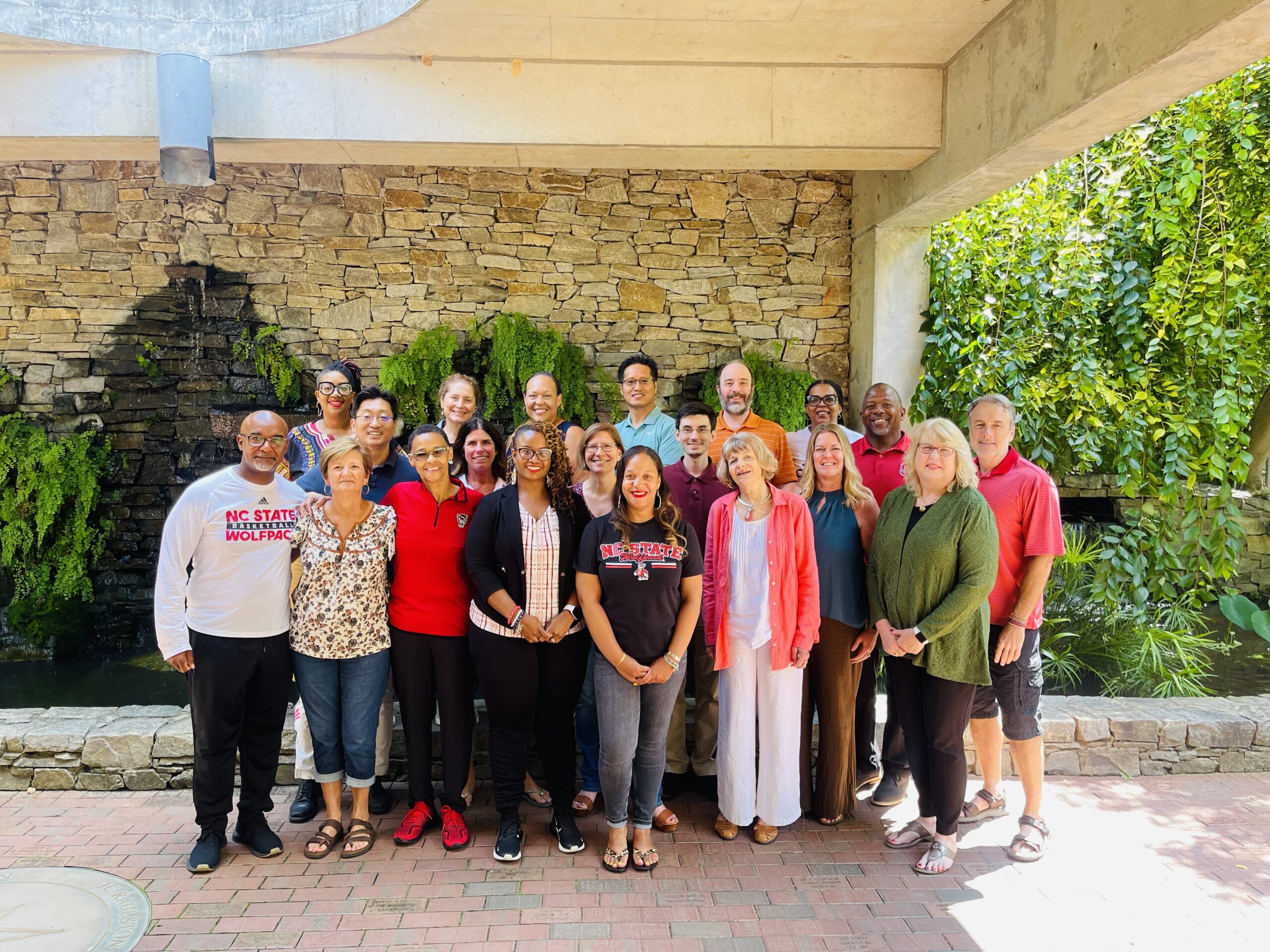
About Us
We’re committed to preparing the next generation of social workers with the skills, knowledge and values they need to improve the lives of others.
Our School
Our Mission
The mission of the School of Social Work at NC State University is to prepare students for practice that addresses social, economic, cultural, demographic, and political changes affecting individuals, families, groups, communities and organizations. Through teaching, advising, research, and scholarship, the school emphasizes:
- Professional ethics
- Belonging
- Community engagement
We offer a Bachelor of Social Work (BSW), a Master in Social Work (MSW) and an undergraduate minor in Social Work.
Our Past Prepares You for the Future
Ours is a proud history: begun more than 50 years ago, our bachelor of social work program is among the earliest accredited BSW programs in the United States. More recently, we added an undergraduate minor in social work. Our Master of Social Work (MSW) program began accepting students in 2005; we introduced an Advanced Standing MSW sequence for students with a BSW in 2010.
Humanities and Social Sciences at NC State
The School of Social Work is housed in NC State’s College of Humanities and Social Sciences, the second -largest college in the university. Our renowned social work faculty span a range of disciplines, including communication studies, English, foreign languages and literatures, history, philosophy, public and international affairs, sociology and anthropology.
Program Assessment
We engage in continuous and systematic planning, in keeping with the standards and expectations of the Council on Social Work Education (CSWE) Policy and Accreditation Standards for Program Evaluation. We ensure that all updates, changes and improvements to the academic programs are evidenced based, data are collected, analyzed and aggregated to adjust for trends and the recommendations of constituents; those being students, alumni, faculty and advisory board members. We perform at least one level of data analysis and, when necessary, program changes, each year. We pay particular attention to student learning outcomes, as well as program outcomes.
We assess student learning outcomes at the respective program levels each semester. At the end of each academic year, we distribute an assessment survey to students to gather data about their classroom and field education experiences. We collect and analyze these data to measure identified outcomes and associations. Our advisory board conducts annual review and analysis of student surveys about specific aspects of the respective programs. In the future, assessments will be conducted with alumni to obtain critical feedback about their post-graduate preparation, experiences and opportunity for employment and practice advancement. We share our assessment findings with faculty, staff, advisory board members and students either through direct distribution and/or through our website.
Our Administrative Leadership Team
Dr. Alan Ellis, Interim Head
Durham native Alan Ellis came to NC State in July 2014 after 17 years at UNC-Chapel Hill, which he spent in various research capacities, including 11 years as a research associate at the Cecil G. Sheps Center for Health Services Research. He took on the role of Interim Head of the School of Social Work in 2025. Dr. Ellis’s research focuses on mental health services, child mental health, and improving research methods. In addition to research, Ellis enjoys writing and teaching.
Rena Gobble, Business Services and Assistant to Dr. Dyson
Dr. Anthony Bennett, Academic Programs Manager
Dr. Paige Averett, Interim Director of Graduate Programs
Professor Trinette Boone-Langley, Director of Undergraduate Programs
Dr. Stephanie Francis, Director of Field Education
Michelle Strickland, Business Services Coordinator
Alex Parsons, Undergraduate Services Coordinator
Daniel Corn, Graduate Services Coordinator
Danielle Fox, Academic Advising Coordinator
The Historic 1911 Building
Summary of History
The Victorian building with a broad Doric verandah (the cream-colored columns are made of brick) had a total area of 45,008 square feet. Originally, it was the largest dormitory in the South. The Class of 1911, which effectively banned the practice of hazing new freshman, impressed faculty members to such a degree that the new dormitory was named in its honor.
When freshmen entered NC State in 1907, it was a popular practice throughout American campuses for upperclassmen to harass new students through rough discipline and humiliating initiations. Tired of the stunts, the Class of 1911 challenged all of the sophomores “to align themselves on opposite sides of Red Diamond [Pullen Park], and at a signal, lunge at each other with weapons limited to bare fists.” The confrontation relaxed much of the tension for the rest of the year. In addition, the Class of 1911 vowed never to haze students, and observed their promise, causing a “landmark in the history of the college.”
Class officers who participated in the achievement were President O. M. Sigman, who died in W.W.I; Vice-President J. W. Rollinson, who later worked with the Savannah Electric and Power Company; Secretary-Treasurer E. R. McCracken Graham, a textile specialist with the U.S. government; Historian J. P. Quinerly Grifton, a farm agent with the Agricultural Extension Service; and Poet J. M. Beal, later professor of botany at the Universities of Mississippi and Chicago and chairman of the board of Encyclopedia Britannica.
1909
Constructed as dorm for 130 students; originally one of the largest dorms in the South.
1912
Wings added to north and south ends to accommodate 110 additional students.
1943
Student population declines during World War II; dorm converted to offices and classrooms; Extension Service, Rural Sociology, Engineering, and Veterans Administration are first tenants.
1952
College Student Union offices move in.
1954
Various offices move out; Social Studies, Music, radio station, Agromeck and other student publications move in.
1957-2007
Various offices move in and out of 1911 Building, including Industrial Education, career counseling, purchasing, World Languages and Cultures, and the Sea Grant program.
2008
Following extensive renovations, the Department of Sociology and Anthropology, Department of Social Work, and CHASS Interdisciplinary Programs take up residence.